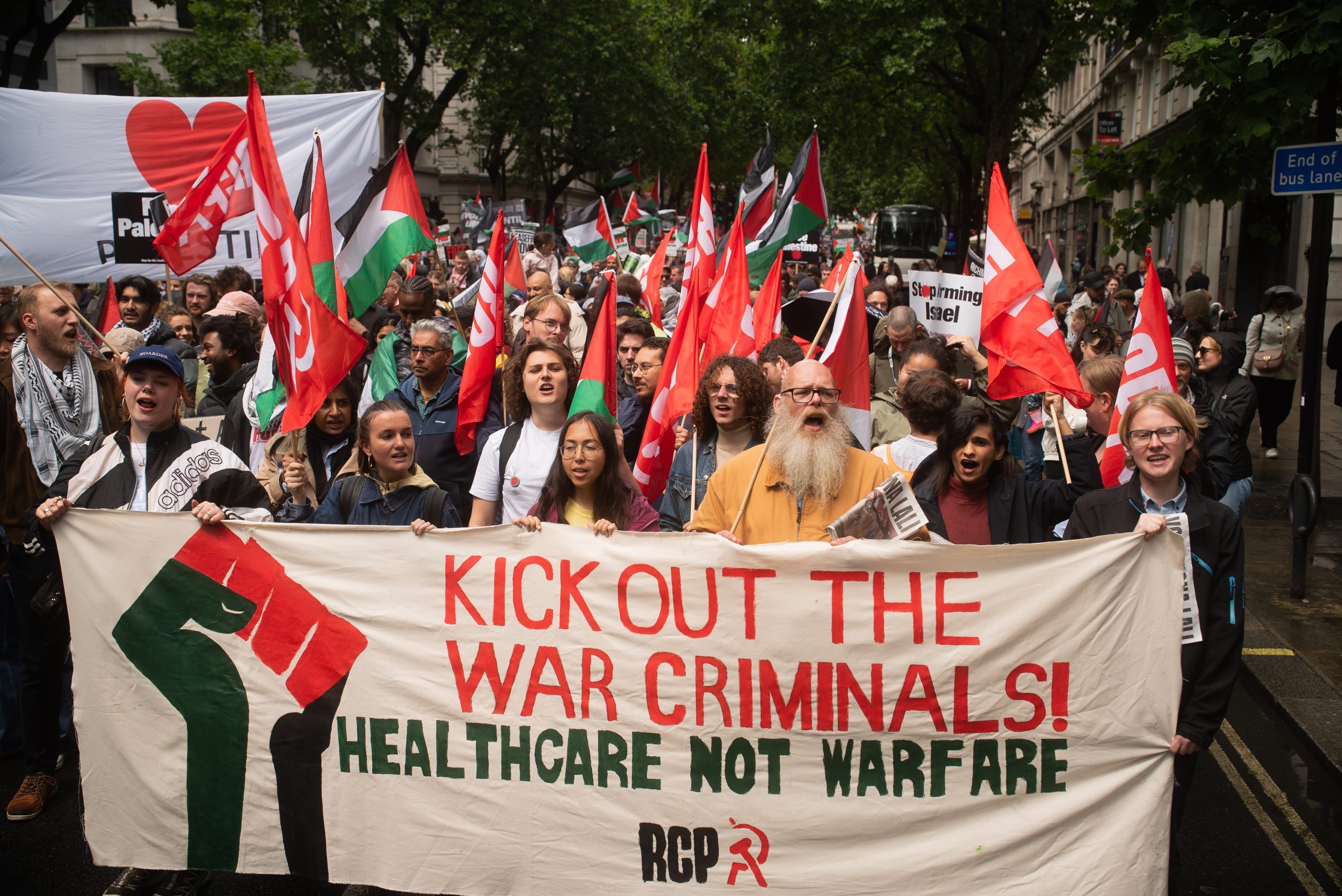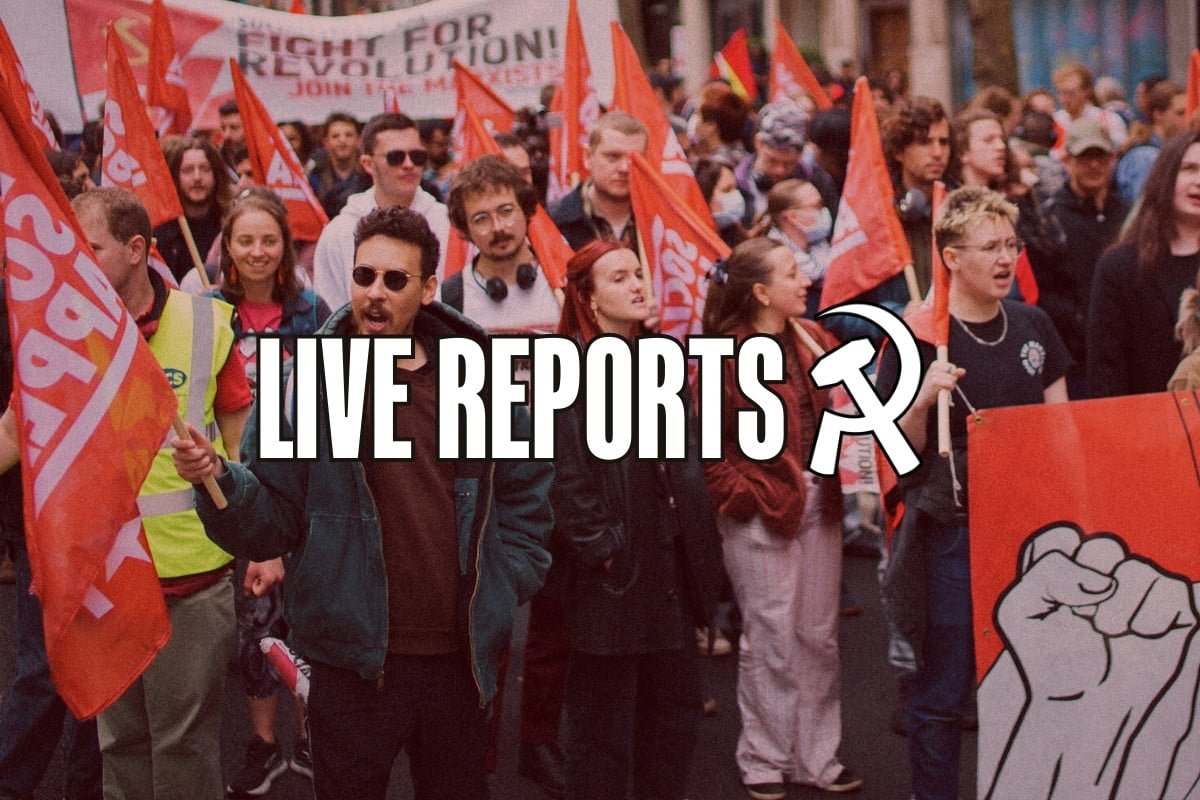Although not as influential as on the Continent, where Marxist ideas became a mass force, they nevertheless had an impact on the British Labour movement. It is no accident that the decision to write the Communist Manifesto was taken in London, and that Marx and Engels spent most of their lives here.
“Its adherents [of Marxism in Britain] showed immense courage at a time when socialist propagandists were often met with physical force,” explained the Labour leader Clement Attlee before the war. “It lived adventurously, and its members took a prominent part in the industrial struggles of the eighties and nineties. Its pioneer work was invaluable…” (Attlee, The Labour Party in Perspective)
In fact, one of the first working class parties in Britain was the Social Democratic Federation (SDF). It was established in 1881 as an openly (if somewhat sectarian) Marxist party, almost 20 years before the Labour Party.
Its members played a central role in building mass trade unions in Britain. “The most prominent leaders [of the unions] were members of the Social Democratic Party,” again writes Attlee, “and it is perhaps in this field that the Federation did its greatest service to the British Socialist movement”.
Eleanor Marx was instrumental in building the Gas Workers Union, the forerunner of today’s GMB trade union. She did this together with Will Thorne, it’s first General Secretary, and Tom Mann as president, and all were members of the Marxist SDF. Ben Tilllett was key in building the National Transport Union, the forerunner of UNITE the Union, and was also a member of the SDF. There were many others at different levels. This clearly shows the importance of Marxists in building the British trade union movement.
When the early Independent Labour Party was established in Bradford in 1892, Marxists also played an important role in its leadership. Its founding members included Edward Averling, who was a member of the Executive Committee and was a close associate of Frederick Engels. Tom Mann, again a Marxist, was an early ILP general secretary.
When the Labour Party was formed in 1900, the SDF was an affiliate and granted two reserved seats on its National Executive Committee, such was its important role at that time.
Unfortunately, the SDF left the Labour Party in 1901, when the party failed to adopt a resolution advocating the nationalisation of the means of production. This action must be regarded as a sectarian blunder which abandoned the party to the right wing. Even then, SDF members still attended Labour Party conferences as Union delegates.
In 1907, the Labour Party became affiliated to the Second International, which was an openly international Marxist organisation and brought together the socialist parties of the world. The party’s affiliation was proposed by Kautsky and Lenin.
In 1916, the SDF had evolved into the British Socialist Party, a Marxist organisation that was affiliated to the Labour Party. It’s most well-known figure was John MacLean from Glasgow.
In 1918, the Labour Party, under the impact of the Russian Revolution, adopted a socialist constitution containing the famous Clause 4, pledging the party to the common ownership of the means of production, distribution and exchange. Although framed by the Fabian Sidney Webb, its wording nevertheless reflected the socialist demands that the British Marxists had always fought for.
Threat to the right
Again, under the impact of the Russian Revolution, the Independent Labour Party voted to leave the old Second International, which had supported the war, and entered into negotiations with the Third International under Lenin and Trotsky. While the Labour Party voted to remain in the Second International, more than half the delegates abstained in the vote.
The newly-formed British Communist Party voted to affiliate to the Labour Party, but this was turned down, in part by the stupid way the request was formulated. However, Communist Party members could still be individual members of the Labour Party up to the Liverpool conference in 1925.
The Labour Party’s right wing always considered the Marxist left a threat to their pro-capitalist policies. It was the right wing who introduced bans and proscriptions against the left in the party, who were then expelled for their views. It is no accident that Stafford Cripps was expelled at the Labour Party conference in 1938, and Aneurin Bevan had the whip withdrawn, as did Michael Foot and Sydney Silverman. In a witch-hunt, others were also expelled and left-wing papers proscribed.
Despite these attacks, the influence of Marxism could not be eradicated. They were forced to keep Clause Four, although they had no intention of implementing it.
In 1948, the Labour Party even published a special centenary edition of the Communist Manifesto. In the foreword written by the Labour Party, it states: “The Labour Party acknowledges its indebtedness to Marx and Engels as two of the men who have been the inspiration of the whole working-class movement.”
But these were crumbs to the left, the right wing dominated the Labour Party, along with the right wing of the trade unions. Labour’s right have always done the bidding of big business. Their role has been to keep the party safe for capitalism, with the support of the trade union leaders. They introduced a long list of proscribed organisations, which was only scrapped when the left took control in the early 1970s.
This threat posed by the left wing was given backbone by the Militant tendency in the 1970s and 1980s. The Militant had been the most successful Marxist tendency in the Labour Party. That explains why the right wing, backed by the capitalist press, attacked the Militant, resulting in a witch-hunt and the expulsion of Militant supporters, including its editorial board.
Tony Benn, who was not a Marxist, nevertheless rose to Militant’s defence. “I believe that no mature tradition of political democracy today can survive if it does not open itself to the influence of Marx and Marxism,” stated Benn.
“The Communist Manifesto, and many other works of Marxist philosophy, have always profoundly influenced the British labour movement and the British Labour Party, and have strengthened our understanding and enriched our thinking.
“It would be as unthinkable to try to construct the Labour Party without Marx as it would be to establish university faculties of astronomy, anthropology or psychology without permitting the study of Copernicus, Darwin or Freud, and still expect such faculties to be taken seriously.”
Tony Benn concluded: “…I am profoundly opposed to any attempt to outlaw, expel or excommunicate the followers of Leon Trotsky from the Labour Party.”
What we fight for
The witch-hunt continued under Kinnock (now Lord Kinnock), and Labour lost the 1983 and 1987 general elections.
However, as with the SDF ninety years earlier, the majority of the leaders of Militant drew pessimistic and ultra-left conclusions, and walked out of the Labour Party into the wilderness. They are now an irrelevant and dwindling sect.
Around this time, the Socialist Appeal was launched to keep together the forces of genuine Marxism, which has nothing in common with sectarianism. Of course, under Tony Blair and New Labour, conditions in the Labour Party were very unfavourable for socialists. We nevertheless held the perspective that the Labour Party would eventually move to the left, as has happened in the past, on the basis of events.
This was shown to be correct with the election of Jeremy Corbyn as Labour leader and the growth of a mass left-wing membership. Incidentally, Jeremy Corbyn and John McDonnell – while not Marxists – recognise the great contribution of Karl Marx and Marxism, as did Tony Benn.
Unfortunately, the failure of the left leaders to introduce open selection and eradicate the capitalist infiltrators in the Parliamentary Labour Party, allowed the right wing to continue their sabotage and return to power within the party.
This represents a big blow. But it is not the last word. The deep crisis of capitalism will radicalise consciousness and shake up the whole situation. The mass organisation will be transformed and re-transformed in the years that lie ahead.
The urgent task is to build up the forces of Marxism, in order to intervene decisively in the turbulent events in front of us.
Marxism is a legitimate – and essential – part of the labour movement. The Marxists have a key role to play. The ideas of Marxism have never been more relevant than as now.
As internationalists, we are supporters of the International Marxist Tendency, which fights for the ideas of Marxism internationally, linking together Marxists on a world scale. This is a concrete expression of socialist internationalism – the only way forward for workers everywhere.






